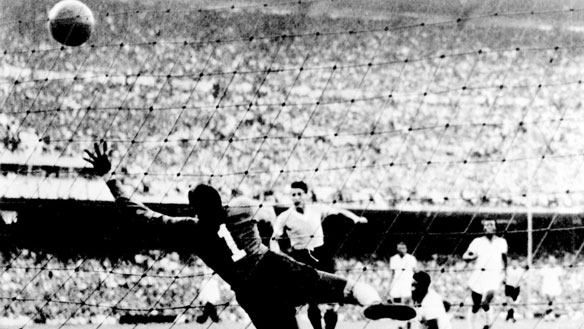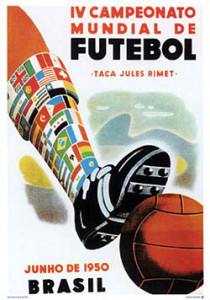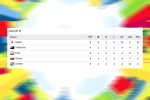
Both previous World Cups were abandoned due to the ongoing global conflict of World War II.
The hunt for a suitable host nation for 1950 was a difficult one, with Europe, North America, the Middle East and Asia still dealing with huge financial, social and political fallout.
Indeed many nations were either banned or chose not to participate depending on their particular alliances at that point in time.
Brazil was a fitting venue to end hostilities, with the nation of football fanatics largely excluded from both World Wars.
When play finally did get underway, it was with just 13 countries (as opposed to 32 in Brazil 2014), one of numerous quirks which would make 1950 a truly memorable event.
Other oddities included:
- India qualifying for the World Cup finals but electing not to participate after being told they could not play in bare feet.
- England losing 0-1 to the USA in what was considered an absurd result at the time.
- Uruguay and Bolivia were the only teams in their pool, after France withdrew. Uruguay beat Bolivia 8-0
- Neighbouring Argentina, one of the giants of football, did not participate due to a dispute with the Brazilian federation.
- Defending champion Italy – who won the previous World Cup in 1938 – suffered a tragedy when many of its elite players were killed in a plane crash a year before the tournament.
- There was not one deciding World Cup final. Instead the top four teams played a round robin competition.
The final four teams left standing were Brazil, Uruguay, Spain and Sweden.
Brazil was on top going into the last match of the round robin and needed only to draw to ensure it took out the title on home soil.
A remarkable crowd packed out Rio de Janeiro’s Maracana Stadium to see their pride take on local rivals Uruguay. Though the official figure was 174,000, several reputable sources list the actual crowd as 200,000 or more.
Everything was going according to script when Friaca put the Brazilians ahead 1-0 in the 47th minute.
But in the blink of an eye, festivities turned to despondency when Uruguay pounced back, first through the boot of Juan Schiaffino in the 66th minute, then Alcides Ghiggia in the 79th minute.
Try as they might, the Brazilians could not claw back the ascendancy and for the second time in its history the Uruguayans (pop 2 million in 1950) held aloft the victors’ trophy.
Alcides Ghiaggia goes down in the history books to have scored in every World Cup match he played in.






